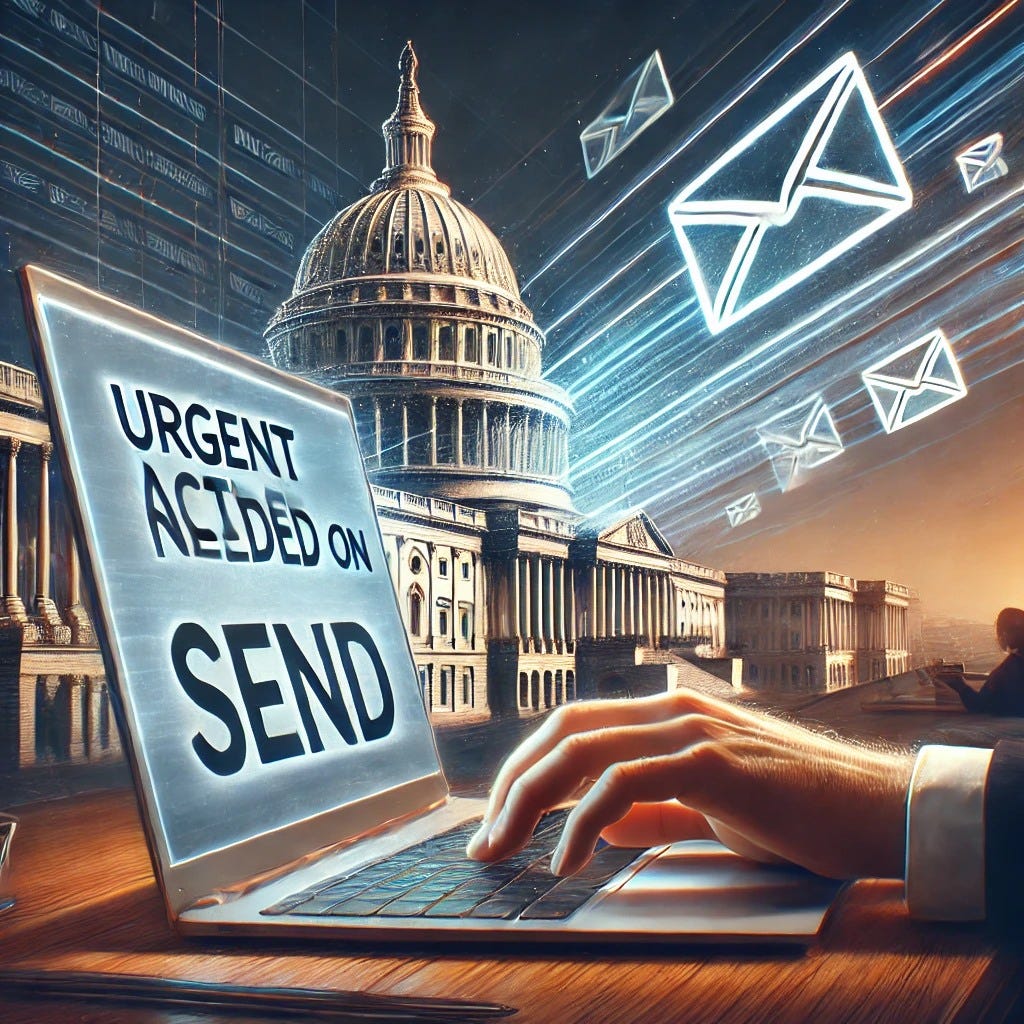🧰Suggested Text for Writing Email Messages to Elected Officials
It Could Also Work as a Script for Phone Calls
Subject: Urgent action needed on [issue/legislation name]
Dear [Representative/Senator Last Name],
I am a constituent from [Your City or ZIP Code], and I urge you to [support/oppose] [specific issue or legislation]. This matter is important to me because [brief personal reason or impact].
[Optional: One or two key facts, statistics, or short personal story reinforcing your point.]
I strongly encourage you to take action by [specific request: voting for/against a bill, co-sponsoring, introducing legislation, etc.]. Your leadership on this issue will directly affect my community, and I will be closely following your stance.
Please let me know where you stand on this. Thank you for your time and service.
Sincerely,
Suggestions for personalizing your message
Specificity is key: The more specific you can be about the issue or legislation, the better. Include bill numbers (e.g., HR 123, S 456) whenever possible.
Focus on local impact: While national issues are important, emphasizing the local impact on your community can be very effective.
Keep it brief: While you want to be persuasive, elected officials get many emails. Keeping your message concise increases the likelihood that it will be read.
Consider adding your phone number: The email form on their official website will likely request your phone number. But while you’re writing an email, adding "My phone number is xxx-xxx-xxxx if you would like to discuss this further" can increase the likelihood of a personal contact.
Tailor to the recipient: Research your representative's or senator's past positions and briefly tailor your argument accordingly. If they've shown support for similar issues, mention it. If they've opposed, address their potential concerns directly.
Fact-check your information: Ensure any facts, statistics or anecdotes you include are accurate and from reputable sources.
Formatting: While plain text is fine, using clear, short paragraphs and bullet points (if applicable) can make your email easier to read.
Follow Up: If you don't get a response, consider sending a follow-up email or calling their office.
Why email is still valuable
While phone calls get high priority, emails serve important purposes:
Documentation: Emails create a written record of your communication.
Accessibility: Email is accessible to people who may have difficulty making phone calls.
Information Sharing: You can easily share links to relevant articles or documents in an email.
Organization: Staff members can easily organize and track email correspondence.
Volume: Elected officials offices are often more able to manage a larger volume of emails than phone calls.
Also at Plainly, Garbl
Advocacy Resources
Where passion meets purpose — and information becomes action.
Find your lawmakers, track legislation, make your voice count.
Step-by-step guides, toolkits, and platforms for effective organizing.


